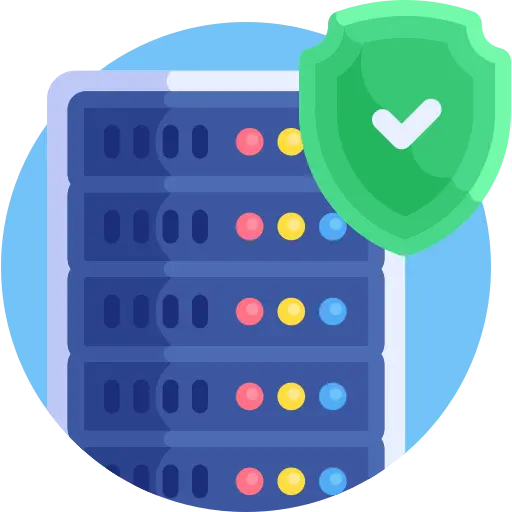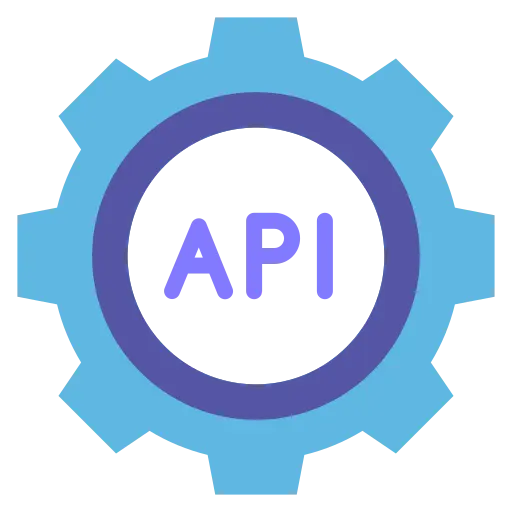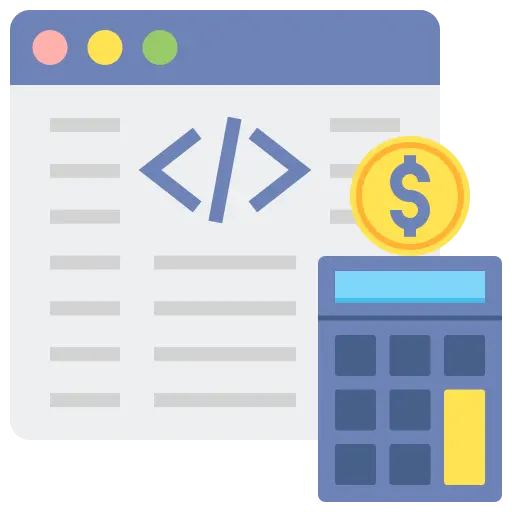Accounting Software Solutions
Key Steps, Success Factors, Financial Outcomes
Custom Accounting Software: The Essence
Custom accounting software provides tailored functionality for business-specific needs across general ledger, payables and receivables management, asset and inventory accounting, financial data reconciliation, payroll and tax management, financial reporting, and more.
To ensure real-time financial data sync, custom accounting solutions may integrate with CRM, HRMS, an inventory management system, asset management software, a financial planning and analysis solution, and other business-critical systems.
The development of custom accounting software may take 6 – 10 months. The costs for building the custom accounting system start from $200,000 and may grow above $400,000, depending on the solution complexity. Annual ROI for custom accounting software may reach up to 290%.
Key Features of Custom Accounting Software
Custom accounting software has unique functionality to serve specific accounting needs. We have summarized fundamental accounting software features based on ScienceSoft’s experience with custom accounting software projects.
Journal entry management
- Rule-based creation, update and approval of journal entries in the general ledger and subledgers on external and intercompany financial transactions, including multi-currency transactions.
- Customizable journal entry templates.
- User-defined schedules for recurring and reversing journal entries.
- Automated attachment of source documents (invoices, receipts, cheques, payroll reports, leases, etc.) to each journal entry.
General ledger (GL)
- Configurable rules for GL coding and transaction classification by category (asset, liability, equity, etc.).
- Multi-dimensional chart of accounts (COA) with user-defined dimensions, such as business units, regions, product lines, etc.
- Creating custom formulas to calculate debit and credit amounts, GL balances (by period, account, COA dimension, etc.).
- Customizable GL architecture to support complex multi-entity accounting.
- Rule-based consolidation of GL account balances across multiple business entities (company branches, subsidiaries, etc.).
Invoicing
- User-defined rules for invoice generation and submission to customers.
- Customizable invoice templates.
- Configurable workflow for multi-department invoice approval.
- Real-time invoice tracking by status (sent, received, paid, overdue, etc.).
Payroll management
- Creating custom formulas to calculate employee salaries, overtime, bonuses, commissions, deductions, etc.
- Recording and tracking the calculated payroll amounts in the payroll ledger and the general ledger.
- Customizable schedules on employee payments.
Accounts receivable (A/R)
- Creating custom formulas to automatically calculate received, due and overdue amounts, DSO, total revenue by period, etc.
- Automated payment collection via user-defined payment methods, including bank transfers, wire transfers, ACH, credit cards, cheques.
- Creating custom prioritization rules for A/R collection.
- Configurable rules for allocation of received payments to relevant customer invoices.
- Customizable customer notifications on due payments.
Accounts payable (A/P)
- Creating custom formulas to calculate the amounts paid, partially paid, owed, total liabilities by period, etc.
- Automated invoice validation against the corresponding purchase orders.
- Creating custom prioritization rules for invoice routing for approval and payment.
- Scheduled/ad-hoc payments via a user-defined payment method.
- Rule-based notifications to accountants on due payments.
Inventory accounting
- Recording and tracking inventory values of inventory items in multiple locations and regions
- Recording and tracking inventory values across various stages of production (raw materials, in-progress goods, finished goods) or/and utilization.
- Recording and tracking costs of goods sold for a specified accounting period.
- Configurable rules to create inventory records based on purchase orders.
Fixed asset accounting
Calculating, recording and tracking:
- Original costs, capitalized costs, and current value of fixed assets, including assets in multiple locations and regions.
- Fixed asset value depreciation based on various calculation methods (straight line method, double declining balance method, units of production method, sum-of-the-years’ digits method, etc.), or custom depreciation schedules.
- An asset’s tax basis.
Tax management
- Creating custom formulas for automated calculation of VAT, sales, use, withholding, income, and other taxes based on the user-defined parameters and region-specific tax rates.
- Recording and tracking data on the calculated tax amounts in the tax ledger and the general ledger.
- Rule-based tax filing under region-specific regulations.
- Customizable schedules on tax payments.
Reconciliation
- Rule-based reconciliation of financial data in bank statements with GL, A/P and A/R records.
- Automated removal of duplicate transaction records.
- User-defined rules to send the outstanding transactions for manual reconciliation.
- Configurable elimination rules for automated intercompany reconciliation.
Analytics and reporting
- Configurable dashboards on GL, A/R and A/P performance, cash inflows and outflows by the type of activity, current asset value, etc.
- Short-term A/R and A/P forecasting.
- Automated financial reporting (monthly, quarterly, yearly, etc.) by region, entity, user-defined COA dimension, etc.
- Customizable templates for various financial reports, including balance sheet, profit and loss statement, statement of changes in equity, customer statement, tax summary, revenue recognition report, and more.
- Configurable reporting periods for various GL books and business entities.
Security and compliance
- Multi-factor authentication.
- Configurable data-level permissions.
- Role-based access control.
- Payment data encryption.
- Invoice timestamping.
- Electronic signature workflow.
- Comprehensive audit trail.
- Customer data retention and deletion policies.
- Compliance with GAAP (specifically ASC 606 and IFRS 15), SOC1 and SOC2, SOX, GDPR (for the EU), ZATCA regulations (for Saudi Arabia), industry- and country-specific regulations.
Go-to Integrations for Custom Accounting Software
ScienceSoft designs a cohesive business environment where the accounting solution is integrated with financial transaction sources and corporate finance planning systems. The main benefit of the integration is time-effective and accurate financial data entry.
- Custom accounting software + CRM: to automatically populate invoices with accurate customer data, payment terms, price and quantity of ordered goods.
- Custom accounting software + inventory management software: to enable accurate recording of inventory values on inventory purchasing and utilization.
- Custom accounting software + asset management software: to enable accurate calculation of the fixed asset depreciation.
- Custom accounting software + a procurement system: to enable the automated purchase order recording in the A/P ledger.
- Custom accounting software + HR management software: to enable accurate payroll calculation.
- Custom accounting software + a cash management system: to automatically create entries on financial transactions across operating, investment, financing activities in the general ledger and subledgers.
- Custom accounting software + financial planning and analysis software: to support accurate financial performance analysis, financial planning, budgeting, and forecasting.
- Custom accounting software + bank accounts: to enable faster reconciliation.
- Custom accounting software + BI solution: to enable accounting analytics and reporting.
Success Factors for Custom Accounting Software
Relying on 15-year expertise in designing and building accounting software, ScienceSoft’s consultants have defined important factors that help bring the customer additional value across accounting processes.

AI-driven accounting analytics
To get recommendations on the optimal payment queues and payment methods, depreciation calculation methods, and more.

Cloud deployment
To reduce accounting software maintenance costs, enable faster updates, and provide easily accessible workspace for global collaboration on accounting processes.

Advanced data security methods
(multi-layer encryption, intelligent fraud detection, vulnerability scanning and patching, etc.). To control access to sensitive financial and business data, easily recognize non-compliant or fraudulent transactions, and minimize the risk of malicious user activities.

Easy-to-use APIs and connectors
To streamline accounting software integration with your essential back-office systems and relevant third-party tools.
How to Develop Accounting Software
Accounting software development requires an accurate action plan to ensure smooth project flow and prevent financial and technology risks. Below, ScienceSoft describes key project steps to provide you with a general idea on how your custom accounting software development process may look.
- Accounting needs analysis and requirements engineering for the custom accounting system.
- Designing the functionality, architecture, and tech stack for accounting software.
- Project planning: deliverables, scope of work, duration, budget, etc.
- Custom accounting software development.
- Quality assurance.
- Accounting data migration (from spreadsheets or a previously used accounting tool).
- Establishing integrations with the required internal and third-party systems.
- User training.
- Continuous support and evolution of the accounting solution (optional).
Custom Accounting Software Development Costs and Financial Outcomes
The cost of custom accounting software development varies greatly depending on:
- The number and complexity of a solution’s functional modules.
- The type of automation (RPA or AI-powered features).
- The volume of data that needs to be migrated from spreadsheets and/or existing accounting software.
- The type of accounting software deployment (cloud, on-premises, hybrid).
- The number and complexity of integrations (with CRM, HRMS, asset management software, an inventory management system, a BI solution, etc.).
Based on Dwellfox Dubai experience, building a custom accounting app of average complexity costs around $200,000 – $300,000, while accounting software development for a large enterprise may require $400,000+ in investments. The annual ROI for custom accounting software may reach up to 290%. |
Key benefits of custom accounting software
Up to 100%
of business-specific accounting needs covered due to tailor-made functionality
80%+
improvement in accountants’ productivity due to automation of accounting processes
90%
improvement in bookkeeping accuracy due to eliminated manual errors
90%
improvement in visibility across accounting transactions
Up to 2x
faster financial close due to rule-based reconciliation
Up to 2x
reduction in DSO due to automated A/R collections
Faster
approval of financial documents and payments due to configurable multi-department approval workflow
Simplified
tax compliance due to automated tax calculation and filing
When Custom Accounting Software Is Your Best Choice
ScienceSoft recommends building custom accounting software in the following cases:
- Applying user-defined events to trigger financial transaction processing.
- Creating customized priority rules for A/P payment and A/R collection queues.
- Custom payroll, tax, employee reimbursement calculations.
- Verification of financial reports based on custom rules.
- Intelligent GL balance forecasting by account.
- Hedge accounting.
- Accounting for crypto-assets.
You need a business accounting solution providing compliance with local regulations in the regions your company operates.
You need highly secure accounting software providing advanced tools to protect your sensitive financial and business data.
You need to integrate accounting software with your custom legacy systems (CRM, HRMS, asset management system, cash management system, etc.) smoothly and cost-efficiently.
When Custom Accounting Software Is Your Best Choice
An accounting software development company with 33 years of experience in creating custom solutions, Dwellfox Dubai helps business in 30+ industries build effective accounting systems tailored to their unique accounting needs.

Accounting software consulting
1. Analysis of of your specific accounting needs.
2. Assessment of the existing accounting processes and tools.
3. Suggesting optimal features, architecture, and tech stack for the accounting solution.
4. Preparing an integration plan (with CRM, HRMS, asset management system, cash management software, etc.).
5. Development cost & time estimates, expected ROI calculation.

Accounting software development
1. Analysis of your accounting needs’ specificity.
2. Accounting solution conceptualization.
3. Architecture design.
4. Accounting software development.
5. Integrating the custom accounting solution with back-office systems (CRM, HRMS, asset management system, cash management software, etc.).
6. Quality assurance.
7. User training.
8. Continuous support and evolution of accounting software (if required).
